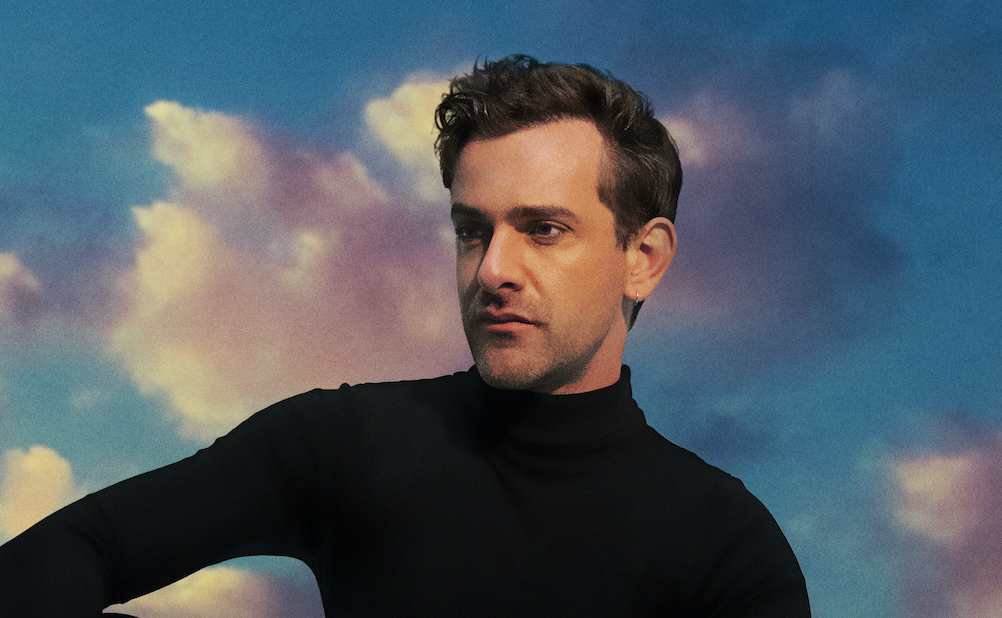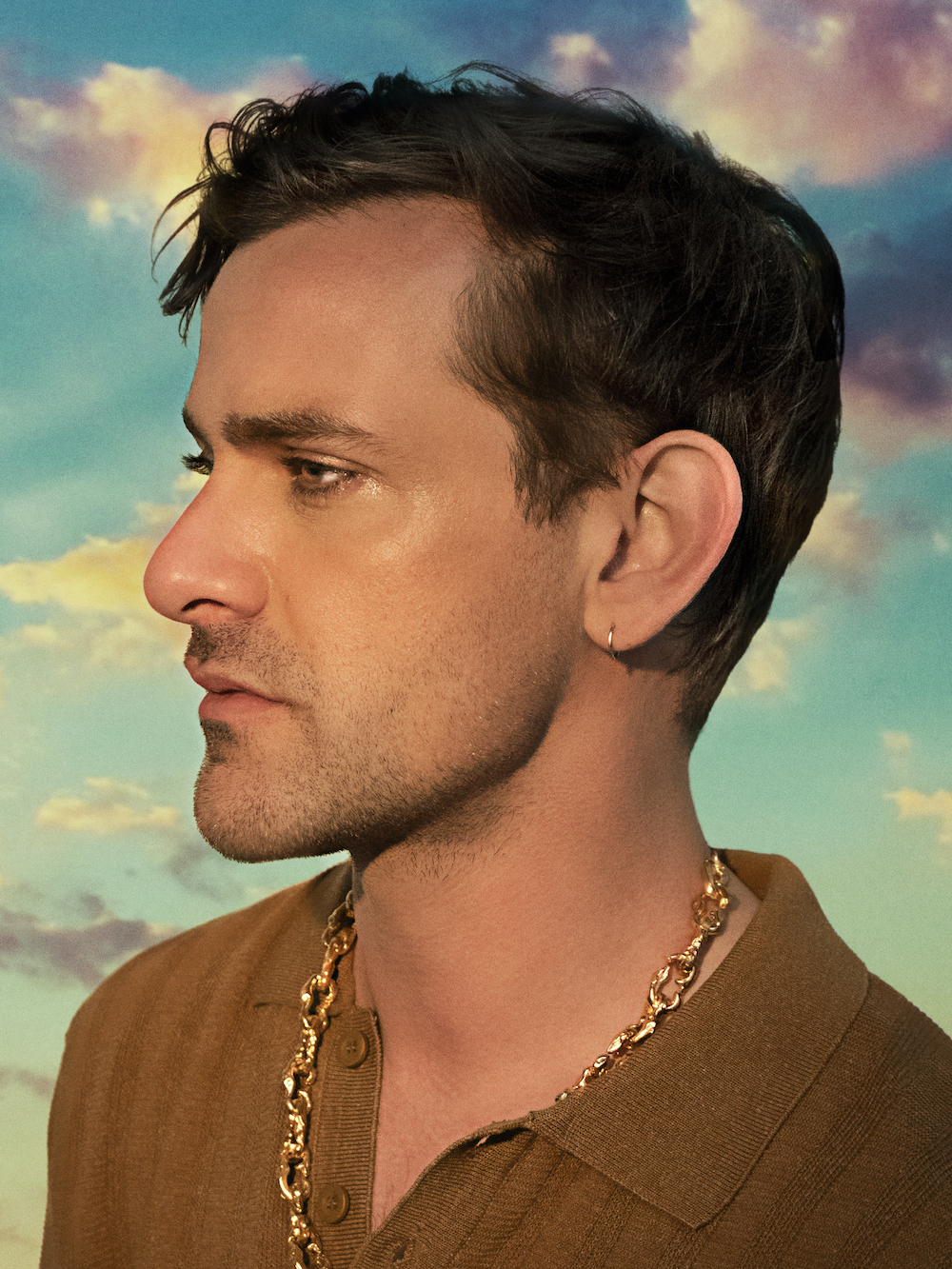
As he releases his new album Islands, Josef Salvat is already looking beyond this new record, which is out Friday (Feb. 18).
Speaking with Variance just days before the album's release, the Paris-based Aussie singer admits much of the material included on Islands was written and recorded several years back. But it's clear this is a record Salvat needed to share, for himself as well as for his fans.
"I'm giving fewer fucks," he declares with a laugh. "I was sitting on this sound for a while, like the sound of the whole record. This kind of dancier, more exclusively electronic and more pop ranges, but I just didn't really have the the balls to back it up. And I'm not sure if I'll make another album like this, but it was definitely time."
As Salvat has been teasing the record with a handful of singles, his confidence has been on full display, brimming and bright, reflective of a more mature musician and songwriter, a riskier storyteller, sharing more of himself than the days of his first EP in 2014, perhaps somewhat subconsciously.
"I feel like it's less revealing than my old stuff," he confesses, adding: "But I often find with my writing, when I'm trying to be really honest, my discomfort with my honesty can get in the way without me even realizing it ... and when I'm not trying so hard to be precise with my story, to conjure an experience which is pretty universal—like 'One More Night' is like, you just had somebody in bed, having sex. But you're actually remembering what it was like. And I'm less concerned about being so specific to my own experience, it's actually more intimate."
For Salvat, this new record is about tying together threads of the last decade and the closing of a chapter, following a series of changes in his personal life, his career and various relationships, inspired by distance, not only because of the last couple of years, but simply the reality of life, as Salvat has come to understand.
"We're always separate from each other," he says. "And I have wanted for a long time in my life to not be separate, but to have that sense of completion. And I would dare say that every single human being has that sense of desire. It's the experience of being in the womb. You're literally part of someone else's body, and then you're not and you never will be again. And I guess the closest you might get to that is penetrative sex, in a way, but there's this hunger we all feel. And part of the human experience and maturing emotionally is how you negotiate that and how you feel comfortable in that distance."

Strange as it might seem to admit at the outset of a new album cycle, Salvat says he plans to take some time away after Islands is released, not so much a hiatus but a break to regroup and evaluate his sound.
"I'm going to focus on my writing for a little while," he explains. "I've released two and a half albums in about two years. And it's not going to be a long break, like the one between Night Swim and Modern Anxiety," he says, noting the five years between his 2015 debut record and the 2020 followup. "But of course, that wasn't my choice."
For his first two full-lengths, Salvat was signed to Sony, one of the aforementioned "relationships" now in the singer's past, something for which he is grateful, even if it comes with its challenges, as he recently addressed in a candid note to fans about the heartbreak of canceling his upcoming tour, including European shows which were several months away.
"I’m independent now," he wrote on social media. "So I fund my own tour. Without the U.K. tour happening, even at a later date this year, I can’t afford to go on the European tour on its own."
Adding more detail that note, Salvat says, speaking with Variance on Zoom, "A tour is a very expensive exercise," he says openly. "I have the boys in my band and we have rehearsals, and you have production, and there's the travel and there's housing. So you have the upfront costs no matter what, whether you're playing one show or 20. And in order to make it worth it, you have to be able to make a profit. And to be honest, I was going to break even on this tour. So when he half the dates between Europe and the U.K., I would have been running at a loss, which I can't afford to do."
He continues: "At the end of the day, music is a business, and it sucks that it's like this. And we've just been through two of the hardest years the modern music industry has experienced from an artistic standpoint."
Of course, Salvat knows he's hardly alone in this situation, a reality which existed pre-pandemic but has only been exasperated since the spring of 2020, when much of the global live music industry shuttered almost in a matter of days.
"It's not just touring," he says, as he notes the lackluster royalties of music streaming, pointing to his popular 2020 track "in the afternoon," which has racked up an otherwise massive 4.6 million plays on Spotify. "It's made me about $600, USD, from Spotify alone. That's way less than a month's wage. Of course, you can make hundreds of thousands of dollars, depending on the success of a song, but it's not a sustainable approach."
Speaking with a distinct sense of conviction in his voice, he says: "It killed me to lose this tour. Because I haven't been able to tour for two years. And I want to see people! I miss people! You remember faces at the shows. And I haven't been on a proper tour since 2016."
Thus, the reason the singer is both excited about releasing this new record, while readily keeping one eye on the future.
"When I release my next body of work, I'll definitely tour then," he promises. "But right now, with this project, we have to wait until we get out of this period."
In the meantime, Salvat has landed on a compromise, performing his new music live for a limited-capacity audience in London, which was filmed the week of the album release and will be broadcasted to fans globally in March.
And while he laments the challenges regarding touring and various income streams, he doesn't regret being an indie artist.
"I'm much happier being independent at the moment," he says. "I have a lot more freedom. I was stuck in a sort of prison for five years between my first and second album, and that was horrible. So I'll take dire financial straits any day over not being able to release my music. Absolutely." ■












